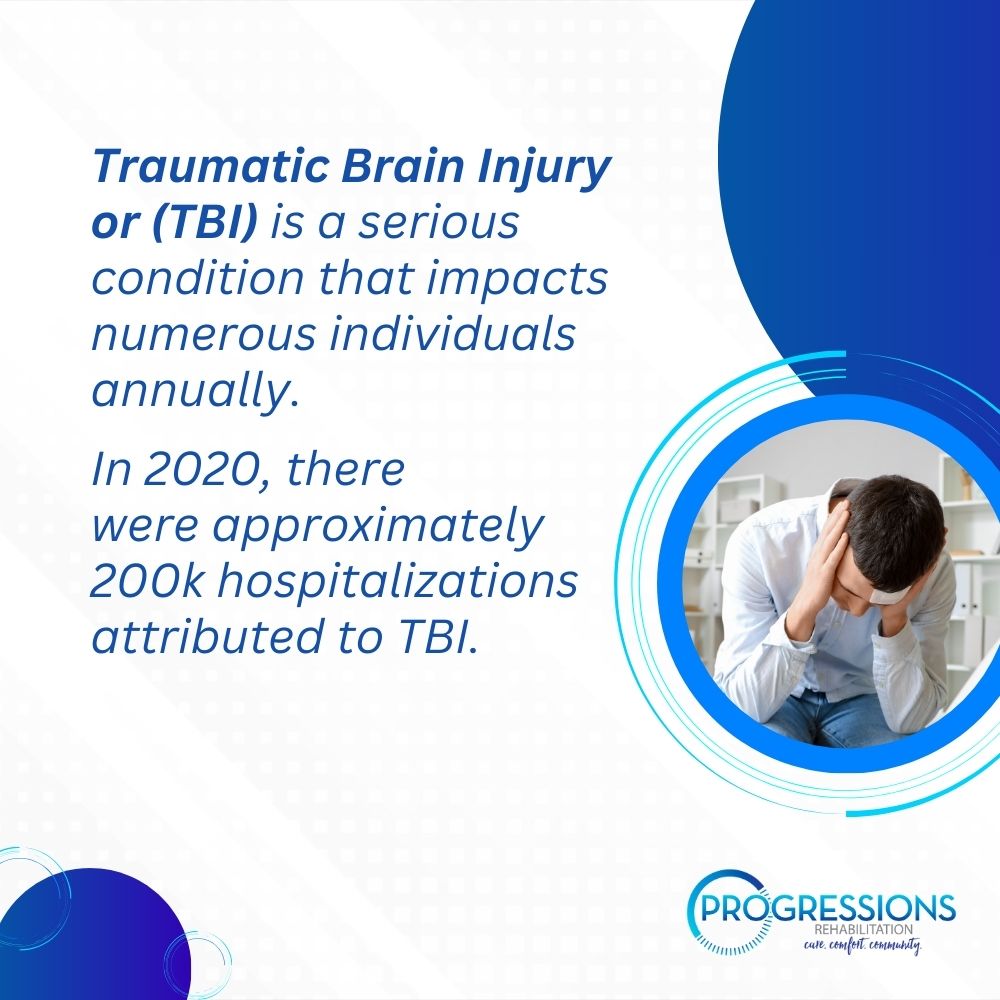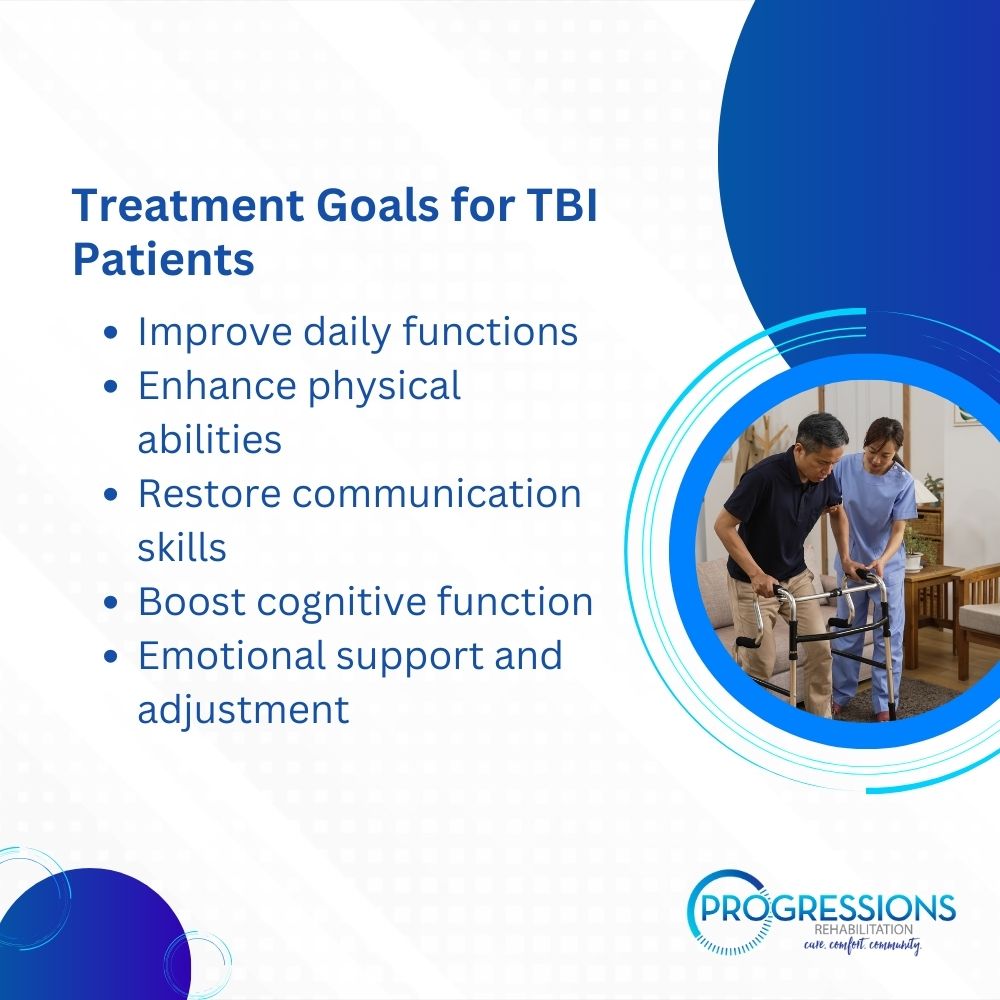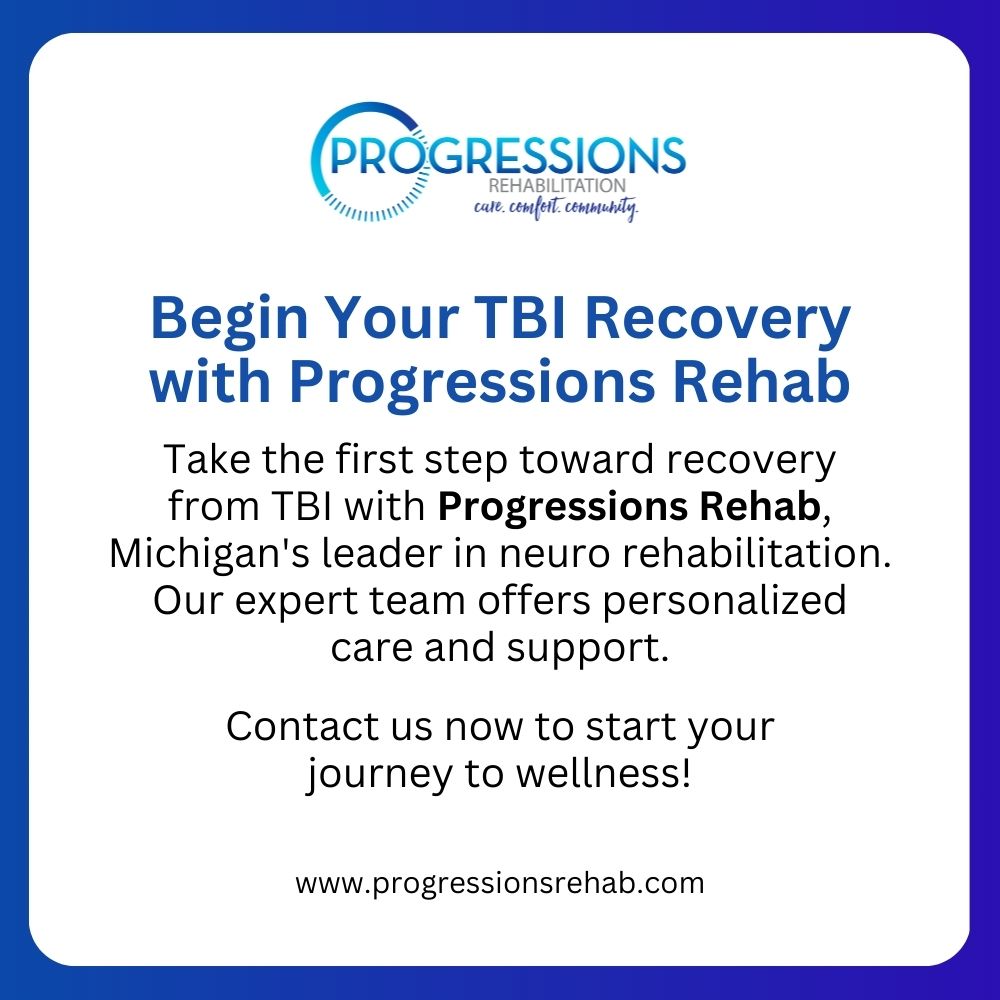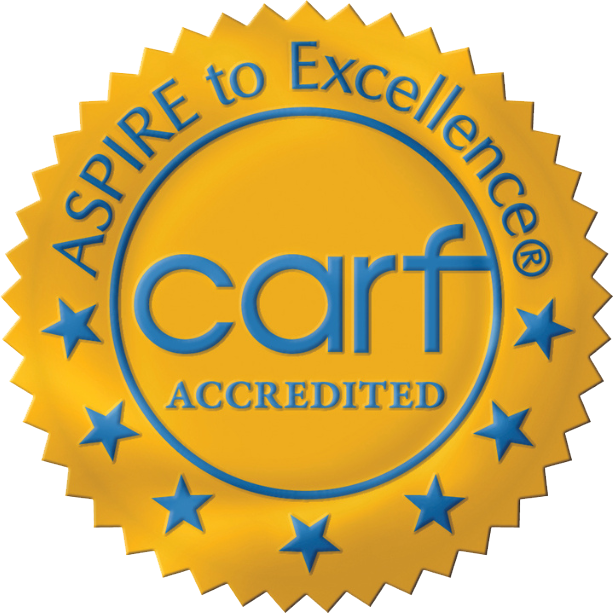Traumatic Brain Injury (TBI) is a severe condition that affects many people every year. In 2020, there were an estimated 214,110 hospitalizations related to TBI. If you or someone you love has experienced a TBI, understanding the rehabilitation process is crucial for recovery.
This guide will explain what TBI rehabilitation involves, including the different types of therapies, the goals of treatment, and the potential outcomes you can expect.

What is TBI Rehabilitation?
TBI rehabilitation is a process that helps people recover after a brain injury. Think of it as a unique program that allows the brain to heal and return to its best. Just as you might go to physical therapy to help heal a broken leg, TBI rehab helps repair and strengthen your brain so you can return to your everyday activities.
Why is TBI Rehabilitation Important?
TBI rehabilitation is crucial because it helps people recover lost skills and adapt to new ways of doing things. Without rehabilitation, returning to everyday life and activities can be challenging. TBI rehabilitation helps you:
- Regain Independence: By improving your physical, cognitive, and emotional abilities, you can return to independently performing everyday tasks.
- Enhance Quality of Life: Therapy helps you live a fuller life by improving your ability to communicate, move, and think.
- Adapt to Changes: Rehabilitation supports you in adjusting to any new challenges or changes in your abilities.
Types of Therapies for TBI
Rehabilitation for TBI usually involves different types of therapies. Each type focuses on different parts of the recovery process. Here’s a closer look at the primary therapies you might encounter:
Physical Therapy
Physical therapy is like working out to get stronger. After a TBI, you might have trouble moving your body the way you used to. Physical therapists help you improve your strength, balance, and coordination. They create exercise plans to help you regain the ability to walk, lift objects, and maintain balance.
Occupational Therapy
Occupational therapy helps you with daily activities. After a TBI, simple tasks like getting dressed, cooking, or using the computer might become challenging. An occupational therapist works with you to make these tasks easier. They can suggest new ways to do things or use special tools to help you become more independent.
Speech Therapy
Speech therapy helps with communication and cognitive skills. This therapy isn’t just about talking; it also covers understanding language, memory, and problem-solving. If TBI has affected how you speak or understand others, a speech therapist will work with you to improve these skills.
Cognitive Therapy
Cognitive therapy focuses on improving mental processes like thinking, memory, and problem-solving. After a TBI, you might have trouble with concentration or remembering things. Cognitive therapists use exercises and activities to help you regain these skills.
Treatment Goals for TBI Patients

The goals of TBI rehabilitation can vary depending on the severity of the injury and individual needs. However, there are common goals that most rehabilitation programs aim to achieve:
- Improve Daily Function
One of the main goals is to help you get back to doing everyday tasks independently. This includes getting dressed, cooking meals, and returning to work or school.
- Enhance Physical Abilities
Rehabilitation aims to improve your physical abilities, such as walking, balancing, and using your arms and legs. This helps you regain independence and perform activities you enjoyed before the injury.
- Restore Communication Skills
The goal for those with speech or language difficulties is to help them communicate more effectively. This might involve improving their ability to speak clearly, understand others, or remember words.
- Boost Cognitive Function
Another goal is to help you with thinking and memory. This includes improving your focus, solving problems, and remembering important information.
- Emotional Support and Adjustment
Rehabilitation also addresses emotional and psychological well-being. Adjusting to life after a TBI can be challenging, so therapists provide support to help you cope with changes and manage any emotional stress.
Challenges in TBI Rehabilitation
Explore the challenges in TBI rehabilitation, including cognitive, emotional, and physical hurdles, and discover innovative strategies for improved recovery.
Physical Challenges
Regaining control of the body is a significant challenge for TBI patients. Post-injury, the brain can struggle to signal muscles, leading to difficulties in movement, walking, and standing. Weakness, fatigue, balance issues, and pain in the head, neck, or other areas further complicate everyday tasks and physical recovery.
Cognitive Challenges
After a TBI, cognitive functions like thinking, memory, and problem-solving may decline. Individuals might need help remembering new information or recalling past knowledge. They often need help focusing, may take longer to process thoughts and find decision-making and problem-solving challenging, causing frustration for themselves and others.
Emotional and Behavioral Challenges
A TBI affects not only movement and thinking but also emotions and behavior. Many with TBI experience sadness, anxiety, or anger, often feeling depressed and unmotivated. Increased irritability can lead to outbursts, while loss of interest in activities and social withdrawal can result in loneliness and isolation.
Communication Challenges
Communicating can be challenging for someone with TBI. They may need help finding words, speaking clearly, or understanding fast-paced speech and complex language. Nonverbal cues like body language and facial expressions can also be challenging to interpret, leading to misunderstandings and difficulty connecting with others.
Social and Environmental Challenges
People with TBI face challenges in their environment and social settings. Navigating public places can be challenging, especially with mobility aids. They may feel judged or misunderstood, leading to isolation. Additionally, the high cost of rehabilitation can strain families financially, complicating their recovery journey.
Potential Outcomes of TBI Rehabilitation
The outcomes of TBI rehabilitation depend on many factors, including the severity of the injury, the types of therapy used, and the individual’s overall health. While recovery can vary, many people experience significant improvements. Here’s what you might expect:
- Increased Independence: With successful rehabilitation, many individuals regain the ability to perform daily tasks independently. This means they can return to living more independently and enjoying a higher quality of life.
- Improved Physical Function: Physical therapy can improve movement, strength, and balance. Many people find that they can walk, lift objects, and perform physical activities more easily after completing treatment.
- Better Communication: Rehabilitation often results in clearer communication and improved understanding for those who struggle with speech or language. This helps them connect with others and express themselves more effectively.
- Enhanced Cognitive Abilities: Cognitive therapy can improve memory, attention, and problem-solving skills. This can help with everyday tasks and decision-making, making daily life easier.
- Emotional Well-being: Emotional support during rehabilitation can help you cope with changes and reduce feelings of anxiety or depression. Many people find that they are better able to manage their emotions and adapt to life after a TBI.
Find Your Recovery Journey with Progressions Rehab
Recovering from a TBI demands an effective rehabilitation program for optimal outcomes. At Progressions Rehab, we specialize in neuro rehabilitation in Michigan, offering comprehensive TBI care and assisted living for brain injury patients.
If you’re searching for “traumatic brain injury group homes near me,” and live in the Macomb County area, then Progressions Rehab is your ideal choice.
At Progressions Rehab, we are committed to supporting you every step of the way. Our experienced team develops personalized therapy plans tailored to your unique needs, empowering you to regain independence and improve your quality of life.
Are you ready to advance in your recovery journey? Contact us today to schedule a consultation and begin your personalized rehabilitation plan. We’re here to help you return to living your life to the fullest.

***
The material on this site is for informational purposes only and DOES NOT CONSTITUTE THE PROVIDING OF MEDICAL ADVICE, and is not intended to be a substitute for independent professional medical judgment, advice, diagnosis, or treatment. Always seek the advice of your physician or other qualified healthcare provider with any questions or concerns you may have regarding your health.



